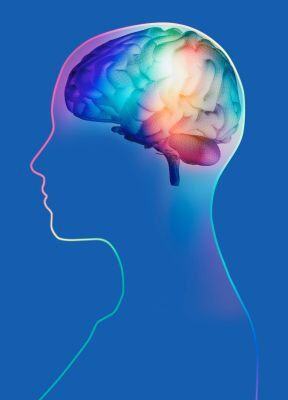Enhancing Neurology Practice Efficiency: The Comprehensive Impact of EHR Software
In the realm of managing a neurology practice, the imperative integration of cutting-edge software solutions to elevate patient care has become increasingly apparent. Navigating the complexities of neurological patient care necessitates a profound reliance on technological advancements, making the adoption of Electronic Health Records (EHR) software tailored explicitly for neurology an indispensable consideration. Contrasted with generic EHR software, the implementation of specialized neurology-focused EHR software promises a paradigm shift in outcomes and operational efficiency.
Streamlined Data Input through Neurology-specific Templates
The intricate nature of evaluating and treating neurological conditions compels your staff to meticulously document an extensive array of details during patient interactions. Herein lies the transformative potential of EHR software designed for neurology. By harnessing the power of meticulously designed templates, data input is expedited and errors are significantly curtailed. These templates serve as structured frameworks that not only expedite data entry but also serve as invaluable guides, ensuring the comprehensive inclusion of essential patient information. For instance, templates can encompass a gamut of topics, spanning from memory-related problems and epilepsy to vertigo, brain stem issues, and vestibular nerve concerns. Over time, neurologists can personalize these templates to create shortcuts for recurring conditions, facilitating efficient processing, data retention, and even seamless electronic prescription transmission to pharmacists.
Revolutionizing Data Management, Especially in Imaging-intensive Cases
Neurology patient management frequently generates an avalanche of data, particularly in scenarios requiring repeated MRI scans for ongoing diagnostics and treatment evaluation. Here, the utility of EHR software specific to neurology is vividly showcased. By swiftly amalgamating diverse patient data, the software empowers practitioners to instantaneously retrieve pertinent information across the practice's network infrastructure. This immediate access to a holistic patient overview augments clinical decision-making, fosters continuity of care, and amplifies diagnostic accuracy.
Transcending Traditional Documentation: Handwriting and Voice Recognition
Navigating the intricacies of medical documentation receives a significant facelift through the amalgamation of advanced handwriting and voice recognition capabilities within neurology-specific EHR software. Medical professionals can now seamlessly transition from handwritten notes to machine-readable text, courtesy of automated transcription mechanisms. Moreover, the software's voice recognition prowess translates spoken medical discourse into real-time on-screen text, augmenting the efficiency of your medical team's communication and documentation processes.
Unlocking Unprecedented Efficiency and Precision
As the healthcare landscape evolves, the adoption of specialized EHR software tailored to neurology proves to be a pivotal stride towards optimizing patient care and practice efficiency. In a domain where time is of the essence, the incorporation of these advanced tools ensures streamlined patient encounters and expeditious insurance-related processes. It is worth acknowledging that peers within the neurology landscape are progressively leveraging such specialized software, positioning their practices at the vanguard of patient care. By embracing this transformation, your practice not only stands to save time and minimize errors but also extends its capacity to attend to a larger patient cohort with heightened precision.
Key Takeaways
- Tailored EHR software for neurology supersedes generic counterparts in enhancing practice outcomes.
- Neurology-specific templates expedite data input and bolster comprehensive information capture during patient interactions.
EHR software adeptly manages vast volumes of neurological data, including MRI scans and test results. - Handwriting and voice recognition functionalities optimize documentation processes and overall medical team efficiency.
- Embracing specialized EHR software marks a pivotal stride towards time efficiency, error reduction, and augmented patient care in neurology practices.
About Stephen O'Connor
Stephen O'Connor is the Director of Brand and Digital Marketing, responsible for many aspects of Advanced Data Systems Corporation’s (ADS) marketing, including product marketing, customer acquisition, demand generation, brand, brand design, and content marketing.
Stephen has more than 20 years of healthcare industry experience. Prior to ADS, Stephen spent 11 years at Medical Resources Inc. (MRI), most recently as the Manager of Marketing & Internet Services, where he and his teams were responsible for all marketing efforts and the market positioning of MRI’s services.
Stephen spends his day's planning, writing, & designing resources for the modern healthcare professional.


